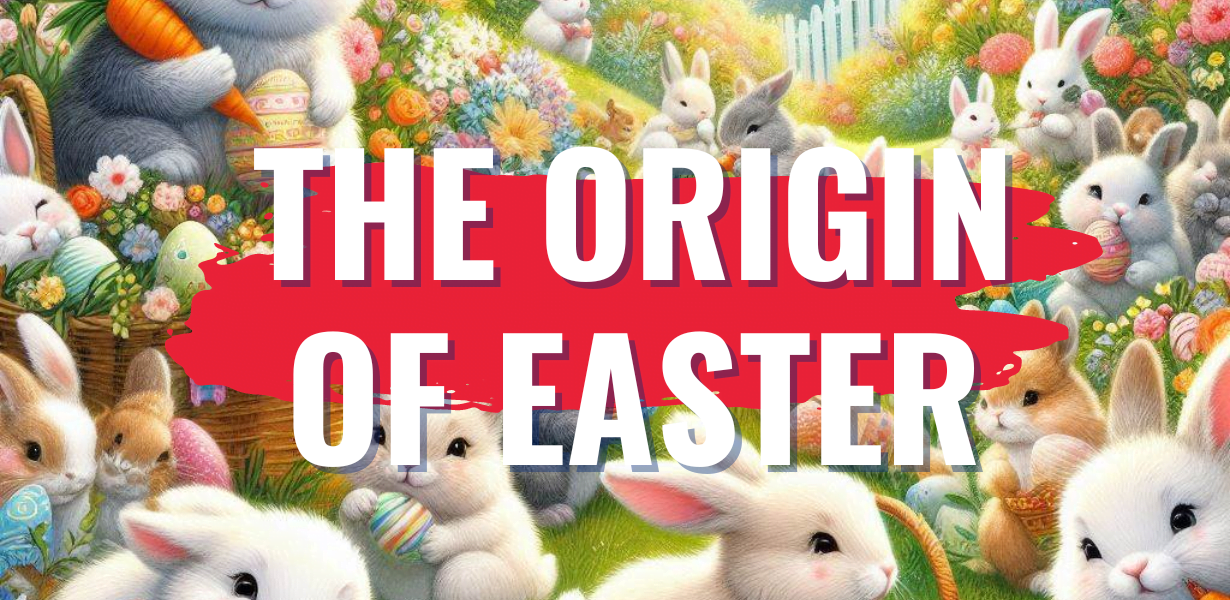Hi there, tudo certinho por aí? Hoje temos um texto traduzido sobre a origem da Páscoa. Let’s do this!
THE ORIGIN OF EASTER
A ORIGEM DA PÁSCOA
Easter is a significant holiday with origins that trace back to Christian beliefs. It commemorates the resurrection of Jesus Christ, marking a cornerstone event in Christianity. According to the New Testament of the Bible, Jesus was resurrected from the dead three days after his crucifixion. This event is seen as a symbol of hope and new life, which is why Easter is celebrated in the spring, a season often associated with rebirth and renewal.
A Páscoa é um feriado significativo com origens que remontam às crenças cristãs. Comemora a ressurreição de Jesus Cristo, marcando um evento fundamental no Cristianismo. De acordo com o Novo Testamento da Bíblia, Jesus ressuscitou dos mortos três dias após sua crucificação. Este acontecimento é visto como um símbolo de esperança e de vida nova, razão pela qual a Páscoa é celebrada na primavera, época frequentemente associada ao renascimento e à renovação.
Over the years, Easter has evolved to include various customs and traditions, making it a blend of religious significance and secular festivities. For Christians, attending church services on Easter Sunday is a central part of the celebration, offering a time to reflect on the meaning of Jesus’s resurrection and what it represents for their faith.
Ao longo dos anos, a Páscoa evoluiu para incluir vários costumes e tradições, tornando-se uma mistura de significado religioso e festividades seculares. Para os cristãos, assistir aos serviços religiosos no Domingo de Páscoa é uma parte central da celebração, oferecendo um tempo para refletir sobre o significado da ressurreição de Jesus e o que ela representa para a sua fé.
In addition to the religious aspects, Easter today is known for several popular customs, especially among children. The Easter egg hunt is a beloved activity where children search for eggs hidden by adults. These eggs, once simple dyed or painted chicken eggs, have transformed into a variety of forms, including chocolate eggs and plastic eggs filled with candies or small toys. The eggs themselves are symbols of new life and rebirth, echoing the springtime themes of the holiday.
Além dos aspectos religiosos, a Páscoa hoje é conhecida por diversos costumes populares, principalmente entre as crianças. A caça aos ovos de Páscoa é uma atividade muito apreciada, onde as crianças procuram ovos escondidos pelos adultos. Esses ovos, antes simples ovos de galinha tingidos ou pintados, transformaram-se em uma variedade de formas, incluindo ovos de chocolate e ovos de plástico cheios de doces ou pequenos brinquedos. Os próprios ovos são símbolos de uma nova vida e renascimento, ecoando os temas primaveris do feriado.
Another well-known Easter symbol is the Easter Bunny, a character derived from folklore, said to deliver sweets and gifts to children on Easter Sunday. This playful figure is often depicted as a rabbit bringing Easter baskets filled with chocolates, candies, and sometimes small toys, adding a whimsical element to the holiday’s celebrations.
Outro símbolo conhecido da Páscoa é o Coelhinho da Páscoa, personagem derivado do folclore, que entrega doces e presentes às crianças no Domingo de Páscoa. Esta figura lúdica é frequentemente retratada como um coelho trazendo cestas de Páscoa cheias de chocolates, doces e, às vezes, pequenos brinquedos, adicionando um elemento caprichoso às celebrações do feriado.
The giving and receiving of chocolate eggs and Easter bunnies have become a widespread tradition, delighting people of all ages. The chocolate egg, in particular, has its roots in the idea of the egg as a symbol of new life, but it’s also a tasty treat that many look forward to during the Easter season.
Dar e receber ovos de chocolate e coelhinhos da Páscoa tornou-se uma tradição generalizada, encantando pessoas de todas as idades. O ovo de chocolate, em particular, tem as suas raízes na ideia do ovo como símbolo de uma nova vida, mas também é uma guloseima saborosa que muitos aguardam durante a época da Páscoa.
Family gatherings are also a significant part of Easter celebrations. It’s a time when many families come together to share a special meal, often featuring dishes that are traditional or significant to their cultural or family traditions. This shared meal is not just about enjoying delicious food but also about strengthening bonds and celebrating the essence of Easter together.
As reuniões familiares também são uma parte significativa das celebrações da Páscoa. É um momento em que muitas famílias se reúnem para partilhar uma refeição especial, muitas vezes com pratos tradicionais ou significativos para as suas tradições culturais ou familiares. Esta refeição partilhada não consiste apenas em saborear uma comida deliciosa, mas também em fortalecer laços e celebrar juntos a essência da Páscoa.
While the ways in which Easter is celebrated can vary widely across different cultures and families, the core themes of renewal, hope, and joy are universal. Whether through solemn religious ceremonies or joyous egg hunts and gatherings, Easter offers a moment to pause, reflect, and celebrate the promise of new beginnings.
Embora as formas como a Páscoa é celebrada possam variar amplamente entre diferentes culturas e famílias, os temas centrais de renovação, esperança e alegria são universais. Seja através de cerimônias religiosas solenes ou de alegres caçadas e reuniões de ovos, a Páscoa oferece um momento para fazer uma pausa, refletir e celebrar a promessa de novos começos.
Easter’s origins are deeply rooted in Christian traditions, commemorating the resurrection of Jesus Christ. Today, it’s celebrated through a mix of religious observances and secular customs, including church services, Easter egg hunts, the Easter Bunny, and family meals. These traditions offer a rich tapestry of ways to observe a holiday that is both solemn and joyous, reflective and fun.
As origens da Páscoa estão profundamente enraizadas nas tradições cristãs, comemorando a ressurreição de Jesus Cristo. Hoje, é celebrado através de uma mistura de observâncias religiosas e costumes seculares, incluindo serviços religiosos, caça aos ovos de Páscoa, coelhinho da Páscoa e refeições em família. Essas tradições oferecem uma rica variedade de maneiras de observar um feriado que é ao mesmo tempo solene e alegre, reflexivo e divertido.
Veja também:
⇒ SOMETIME x SOMETIMES | Qual é a diferença?
⇒ WRAP ONE’S HEAD AROUND | O que significa esta expressão







